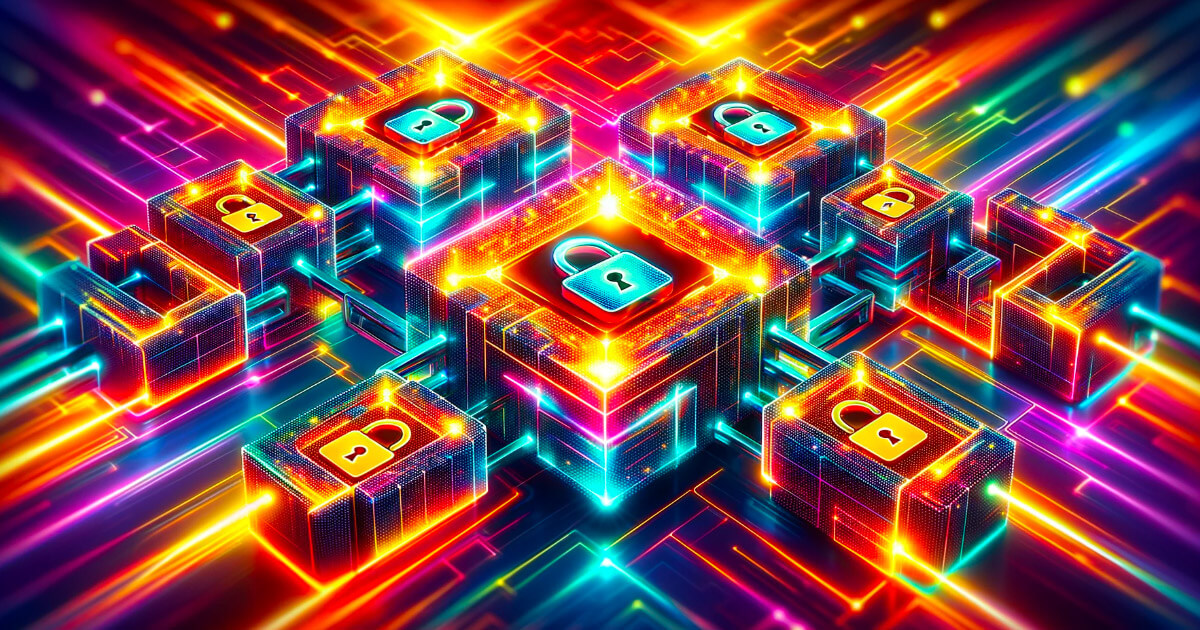
The past year witnessed the ascendancy of Zero-Knowledge (ZK) technology. From the potential to increase and secure privacy protocols in the Web3 space, to the increased efficiency in validating transactions, the implementation of the technology further amplifies the growth and integration of blockchain into our daily lives. Its role in increasing efficiency is central because zk-proofs enable data batching in transactions, reducing the computational requirements for processing the information and the amount of data stored on blockchain networks.
This means introducing a reliable scalability mechanism that the industry has sorely lacked until now. The additional component that has secured its place as the new, widely accepted validation protocol is the inherent ability to process this data without the need to add unnecessary information, strengthening the privacy frameworks inherent to blockchain.
To underline the commitment and recognition of this potential, Ethereum and other Layer 1 platforms, the mainstays of the industry, are transitioning to settlement and proof verification through the implementation of ZK technology. As Layer 1s integrate this technology, we are about to see industry-wide standardization. By securing the Web3 space with stronger validations, an issue that urgently needs to be resolved, this shift has the potential to secure the industry’s foundations and pave the way for the widespread adoption it has thus far lacked .
Decentralization: an advantage and an obstacle
ZK technology has taken on the role of overcoming decentralization challenges, namely the creation of centralized verification hubs in today’s solutions, and the need for efficient systems to give people easy access to additional chains.
As the Web3 space evolves, the focus is on the broader story of decentralized systems, continuing to do so and emphasizing the need for interoperability in an app-sharing future. The broader industry’s commitment to building systems that resist censorship and cannot be controlled by private entities is clear. In navigating the complexities of today’s rollup solutions, Zk rollups take center stage, providing best-in-class security guarantees through stronger validation while still maintaining privacy features.
The dynamic interplay of scalability and privacy is central to this transformation. Innovations such as Risk0Gnark, ZK building tools, and link-friendly cryptography have made building and deploying ZK technology easier. While ZK tools are becoming easier to build and integrate, masternodes and keeper-based infrastructure, additional privacy-oriented mechanisms, are undergoing a paradigm shift towards ZK, and hardware acceleration projects such as cysian.xyzpromise performance levels comparable to Solana.
These improvements address scalability issues by combining the best of vertical scalability with the security features of horizontal scalability.
Finally, ZK technology has also proven to strengthen the bridges between layers, a necessity for interoperability and future growth. Today’s bridging systems have quickly led to centralized nodes, not only creating dramatic security vulnerabilitiesbut could potentially restrict future free access to applications, resources and ecosystems, core components of the sector that should not be subject to the control of private entities.
An additional promising solution is represented by Communication between blockchains (IBC). The pursuit of decentralization is not only a technical undertaking, but also a philosophical stance, and we must strive to ensure that everyone can participate in the network.
Privacy as a core value in ZK technology
Privacy is central as a core value in the evolution of ZK technology. As a security measure, further verification methods were needed to thwart the rampant hacks in the Web3 industry.
Currently, this means that the privacy of every party involved is limited. ZK receipts allow entities to perform verification before any transfer, providing only the key data points to validate the transaction. In concrete terms, this would be like validating a company’s creditworthiness without disclosing its full financial data.
The commitment to privacy is not just a philosophical position in blockchain; it is a practical necessity. Privacy is portrayed as a countermeasure against malicious Miner Extractable Value (MEV), a process in which miners validate transactions for a fee, ensuring fair and competitive markets.
Specific projects such as Penumbra, Anoma and Nym illustrate the importance of privacy. In a world where privacy is being compromised, the potential for exclusion and censorship looms large, highlighting ZK Proofs’ central role in ensuring a robust and inclusive Web3 landscape.
Impact on the future of Web3
The 2023 look back shows the progress ZK technology has made, with projects like Nova, Lasso and Jolt leaving an indelible mark on the Web3 ecosystem. These projects have made building and integrating ZK Proofs into existing systems easier.
Yet it has also highlighted the challenges facing the industry, such as reliable scalability, secure interoperability and the potential for centralized systems, and the work that needs to be done to bring Web3 into our daily lives.
Looking ahead to 2024, we will see a shift in on-chain activity as DeFi systems, crypto trading, and cross-chain dApps migrate to ZK-powered blockchains. More and more apps will likely move towards zk-tech and use it for more efficient airdrops and more private and secure trading. An industry-wide commitment is paramount to overcome the current decentralization challenges in the blockchain space.
Leaders of ZK projects must prioritize education and resources; Given the high technical overhead of ZK technology, we need to provide developers with easy-to-use tools to integrate ZK technology into their projects and educational resources, and provide support to guide them in that process.
Projects looking to prepare for the inevitable zk-powered future can do so by partnering with existing zk projects and working together to implement the technology into their existing models.
2023 has been a transformative year, highlighting the impactful contributions of ZK technology in the fields of DeFi, cryptocurrencies and increased decentralization. The optimism for developers and their role in shaping the future of ZK technology in 2024 is palpable, even in the face of ongoing market challenges. It’s an optimism that comes from anticipating Web3’s next steps and the potential that ZK Proofs now offers to plunge the industry into a new era of scale and development.

